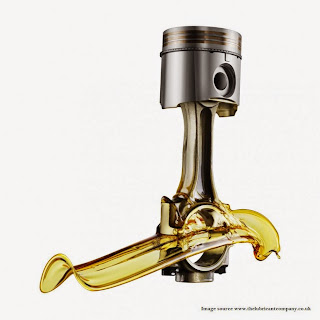Neuroscience Antibodies and Assays Market Top Players and Growth Strategies
According to research report the Neuroscience
Antibodies and Assays Market
is expected to reach USD 4.18 Billion by 2023 from USD 2.57
Billion in 2018, at a CAGR of 10.2%. The growth of this market can be
attributed to the rising incidence of neurological diseases, increasing
investments in neuroscience research, and growth in the pharmaceutical and
biotechnology industries.
Agreements, partnerships, and collaborations accounted
for the largest share of the overall growth strategies followed by key players
between 2015 and 2018. Some of the companies that adopted this strategy include
Cell Signaling Technology (US), Abcam (UK), Rockland Immunochemicals (US),
BioLegend (US), Tecan (Switzerland), and Merck KGaA (Germany).
The neuroscience antibodies and assays market is
fragmented, with the presence of several large as well as emerging players. In
2017, Thermo Fisher Scientific (US), Abcam (UK), Bio-Rad (US), and Merck KGaA
(Germany) were the leading players in the neuroscience antibodies and assays
market. Other major players include BioLegend (US), Cell Signaling Technology
(US), F. Hoffmann-La Roche (Switzerland), GenScript (China), Rockland Immunochemicals
(US), Santa Cruz Biotechnology (US), Siemens (Germany), and Tecan
(Switzerland).
Thermo Fisher Scientific (US) is one of the prominent
players in the neuroscience antibodies and assays market. This leading position
of the company can be attributed to its strong brand recognition and extensive
product portfolio in the neuroscience antibodies and assays market. The company
has a strong foothold in the market with established brands such as Thermo
Scientific, Applied Biosystems, Invitrogen, Fisher Scientific, and Unity Lab
Services. In order to maintain its leading position in the neuroscience
antibodies and assays market, the company adopts organic as well as inorganic
growth strategies such as expansions and acquisitions. For instance, in August
2017, the company acquired Patheon N.V. (Netherlands). This acquisition helped
the company to strengthen its product portfolio and geographical presence in
the pharmaceutical and biotechnology sector. Furthermore, in 2017, the company
opened its new global headquarters in Massachusetts (US).
Abcam (UK) accounted for
the second largest share of the neuroscience antibodies and assays market in
2017. The company offers a broad range of solutions for the neuroscience
industry, which include primary antibodies, proteins and peptides, agonists,
activators, antagonists and inhibitors, ELISA, matched antibody pairs and
multiplex immunoassays, lysates, and cellular & biochemical assays. With
its wide geographic presence and high production capacity, the company delivers
quality products across the globe. This helped the company to develop new and
advanced products and cater to the demand of its customers.
Download Brochure:
https://www.marketsandmarkets.com/pdfdownloadNew.asp?id=129888612
In order to maintain its position in the neuroscience antibodies and assays market, the company focuses on adopting organic as well as inorganic growth strategies. In this regard, in February 2018, the company launched its CatchPoint SimpleStep ELISA (SSE) kits. Also, in February 2018, the company collaborated with Molecular Devices, with the aim to develop high-sensitivity fluorescent ELISA kits, which are immunoassays used to quantify target proteins in basic research. Such developments helped the company enhance its visibility in the neuroscience antibodies and assays market.
Comments
Post a Comment